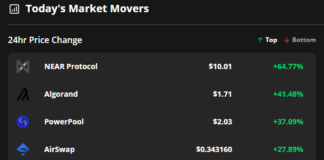SEC Commissioner Uyeda recently highlighted the numerous benefits of securities tokenization, emphasizing the advantages of representing asset rights with digital tokens on a blockchain. He pointed out that this method offers increased security, transparency, and immutability while eliminating the need for intermediaries, thereby streamlining transactions and reducing costs.
Furthermore, Uyeda recognized the efforts of the UK’s FCA in reviewing the tokenization of FCA-authorized funds, emphasizing the importance of research in promoting innovation and growth while safeguarding investors. He encouraged regulators to carefully consider the costs, benefits, and risks associated with tokenization.
In a similar vein, DTCC Digital Assets global head Nadine Chakar also emphasized the potential benefits of tokenization, such as transaction efficiency, cost reduction, and expanded investor access to financial markets. However, she acknowledged the challenges of integrating distributed ledger technology (DLT) into existing systems, calling for industry-wide coordination, standardization, and robust regulatory frameworks.
VanEck CEO Jan van Eck highlighted liquidity and regulation as potential obstacles to the widespread adoption of tokenization in the financial sector. On a global scale, the Bank for International Settlements has identified tokenization and central bank digital currencies (CBDCs) as key areas of focus for regulatory efforts in 2024.
Looking ahead, a report by global consulting firm Roland Berger projected significant growth in the tokenization market, estimating a value of $300 billion with the potential to reach $10 trillion by 2030. These developments underscore the increasing recognition of the benefits and challenges associated with securities tokenization in the evolving financial landscape.

















